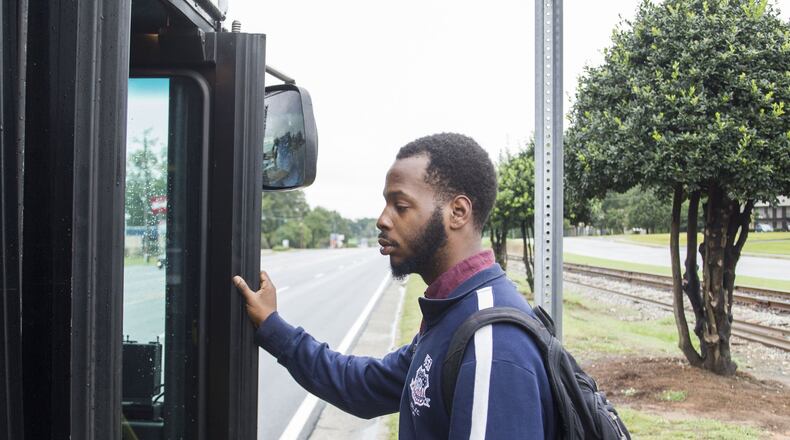A growing number of Georgians are dropping out of college because of the rising costs and the debt that comes with it.
That leaves young people such as DeAngelo Bowie stuck in limbo, as they have to leave college with school loan debt, but no degree, which would help them get a better job. They go back to work in jobs that don’t pay as well while having to drag along extra debt.
That creates an anchor for the Georgia economy, slowing it down in multiple ways. Indebted workers have less money to spend into the economy, they default on loans more often than students who graduate, and there is a looming shortage of skilled workers that leaves Georgia businesses wanting.
“You’re in purgatory,” said Nicole Smith, vice president of Georgetown University’s Center on Education and the Workforce. “You have this extra burden and debt on you that cannot be written off. Because you don’t have the higher credential, you’re not going to be able to get the job to pay it. It’s a significant problem.”
The Hechinger Report has partnered with The Atlanta Journal-Constitution to take a look at student debt and its affects in our state. You can read the full story of DeAngelo Bowie and some steps that the state is taking to try to solve this problem at MyAJC.com.
In other Education news:
About the Author
Keep Reading
The Latest
Featured


